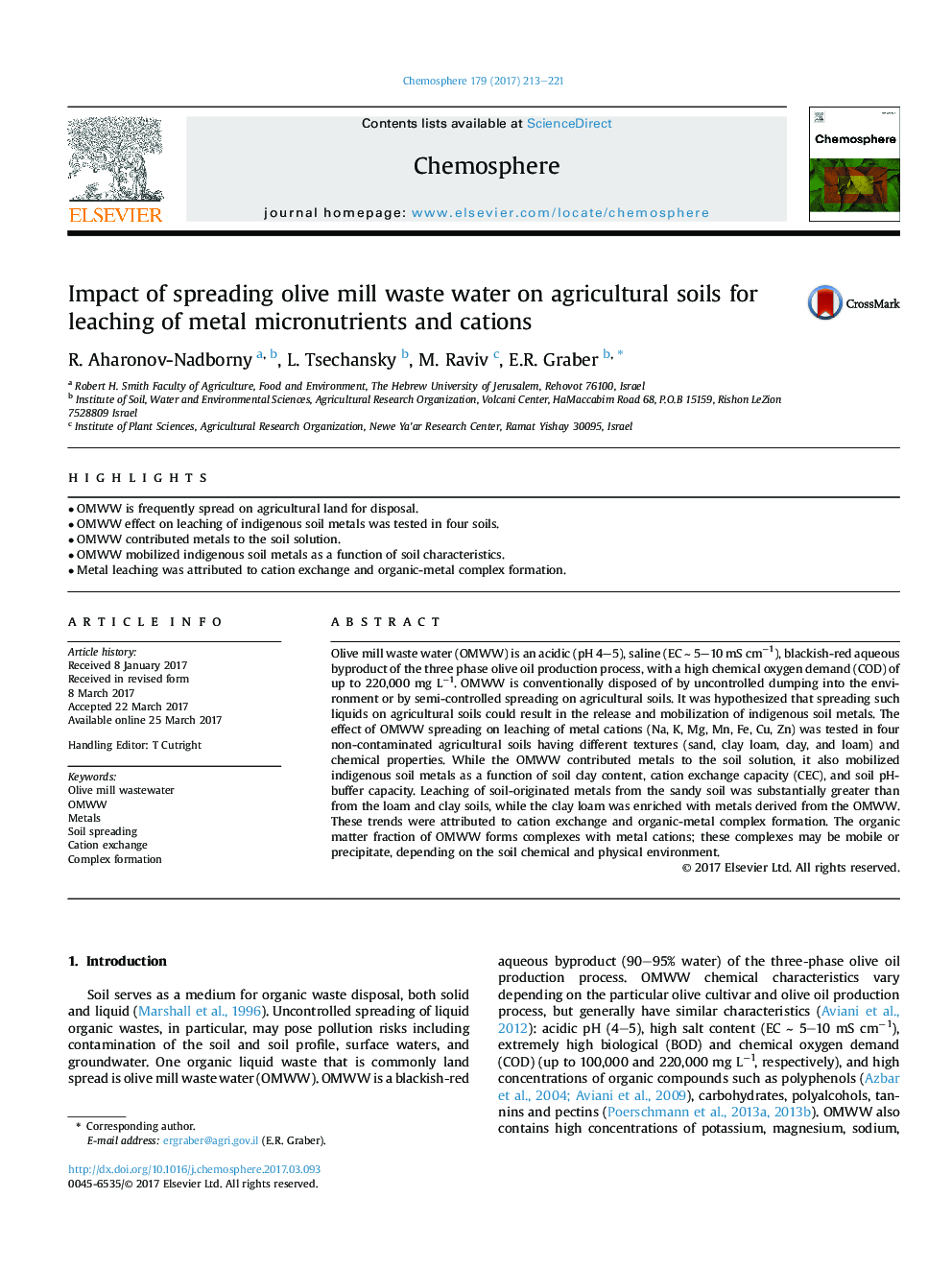| کد مقاله | کد نشریه | سال انتشار | مقاله انگلیسی | نسخه تمام متن |
|---|---|---|---|---|
| 5746541 | 1618792 | 2017 | 9 صفحه PDF | دانلود رایگان |
عنوان انگلیسی مقاله ISI
Impact of spreading olive mill waste water on agricultural soils for leaching of metal micronutrients and cations
ترجمه فارسی عنوان
تاثیر انتشار پساب زیتون در خاک های کشاورزی برای شستن مواد مغذی فلزات و کاتیون ها
دانلود مقاله + سفارش ترجمه
دانلود مقاله ISI انگلیسی
رایگان برای ایرانیان
کلمات کلیدی
موضوعات مرتبط
علوم زیستی و بیوفناوری
علوم محیط زیست
شیمی زیست محیطی
چکیده انگلیسی
Olive mill waste water (OMWW) is an acidic (pH 4-5), saline (EC â¼Â 5-10 mS cmâ1), blackish-red aqueous byproduct of the three phase olive oil production process, with a high chemical oxygen demand (COD) of up to 220,000 mg Lâ1. OMWW is conventionally disposed of by uncontrolled dumping into the environment or by semi-controlled spreading on agricultural soils. It was hypothesized that spreading such liquids on agricultural soils could result in the release and mobilization of indigenous soil metals. The effect of OMWW spreading on leaching of metal cations (Na, K, Mg, Mn, Fe, Cu, Zn) was tested in four non-contaminated agricultural soils having different textures (sand, clay loam, clay, and loam) and chemical properties. While the OMWW contributed metals to the soil solution, it also mobilized indigenous soil metals as a function of soil clay content, cation exchange capacity (CEC), and soil pH-buffer capacity. Leaching of soil-originated metals from the sandy soil was substantially greater than from the loam and clay soils, while the clay loam was enriched with metals derived from the OMWW. These trends were attributed to cation exchange and organic-metal complex formation. The organic matter fraction of OMWW forms complexes with metal cations; these complexes may be mobile or precipitate, depending on the soil chemical and physical environment.
ناشر
Database: Elsevier - ScienceDirect (ساینس دایرکت)
Journal: Chemosphere - Volume 179, July 2017, Pages 213-221
Journal: Chemosphere - Volume 179, July 2017, Pages 213-221
نویسندگان
R. Aharonov-Nadborny, L. Tsechansky, M. Raviv, E.R. Graber,
